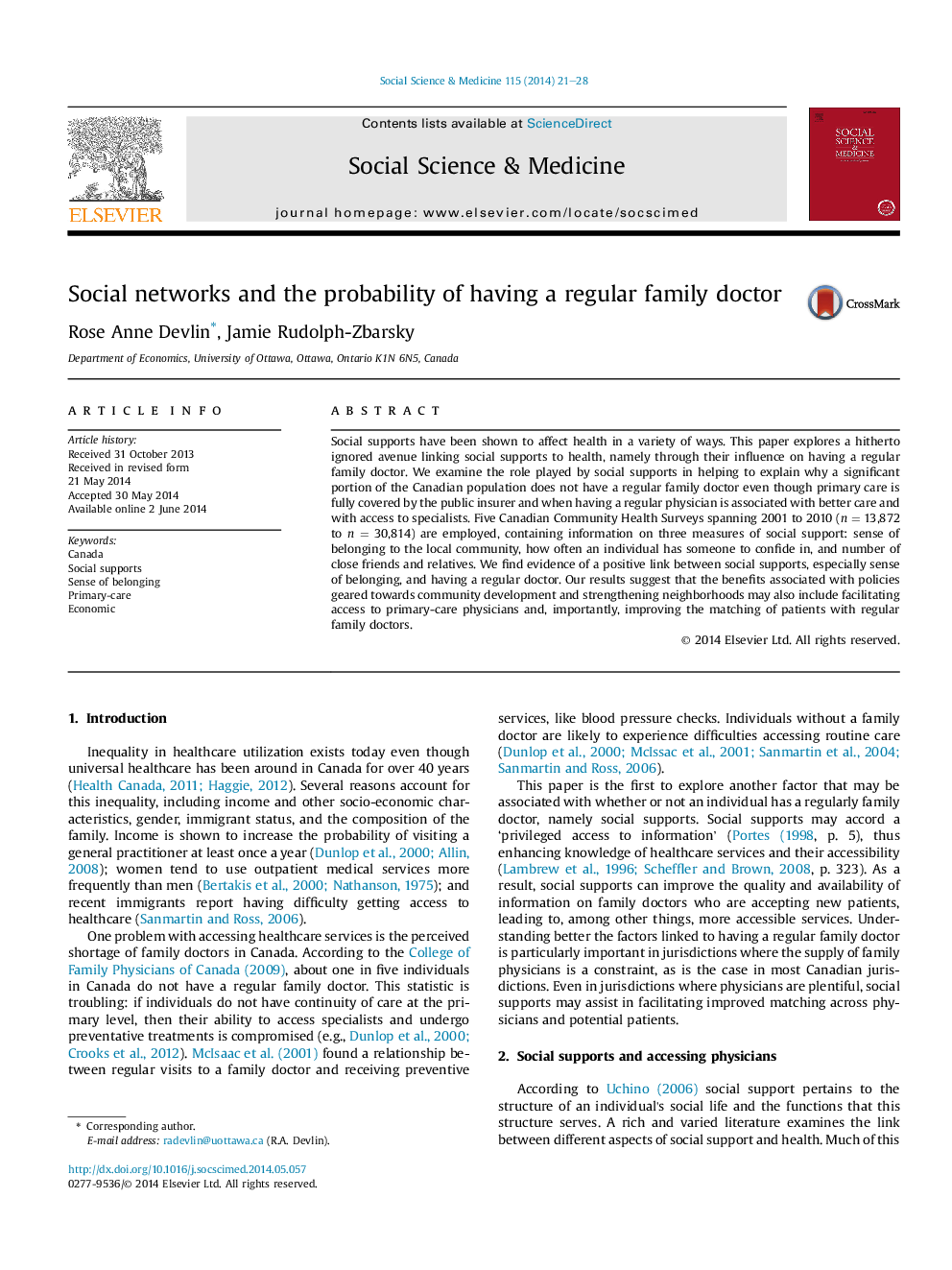| Article ID | Journal | Published Year | Pages | File Type |
|---|---|---|---|---|
| 952266 | Social Science & Medicine | 2014 | 8 Pages |
•The first paper to examine empirical how social supports are linked to the probability of having a regular family physician.•Sense of belonging is strongly associated with the likelihood that individuals have a regular family physician.•Several socio-demographic factors influence the likelihood of having a regular doctor.•Even in a publicly funded system, high-income individuals have privileged access to regular family doctors.•Policies that improve community cohesiveness may also improve information flows and access to regular physician.
Social supports have been shown to affect health in a variety of ways. This paper explores a hitherto ignored avenue linking social supports to health, namely through their influence on having a regular family doctor. We examine the role played by social supports in helping to explain why a significant portion of the Canadian population does not have a regular family doctor even though primary care is fully covered by the public insurer and when having a regular physician is associated with better care and with access to specialists. Five Canadian Community Health Surveys spanning 2001 to 2010 (n = 13,872 to n = 30,814) are employed, containing information on three measures of social support: sense of belonging to the local community, how often an individual has someone to confide in, and number of close friends and relatives. We find evidence of a positive link between social supports, especially sense of belonging, and having a regular doctor. Our results suggest that the benefits associated with policies geared towards community development and strengthening neighborhoods may also include facilitating access to primary-care physicians and, importantly, improving the matching of patients with regular family doctors.
